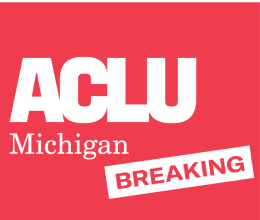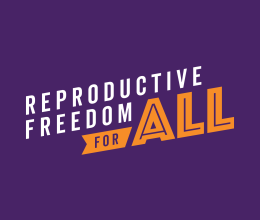
In 2013 the ACLU filed a first-of-its-kind lawsuit against the U.S. Conference of Catholic Bishops (USCCB) after a Catholic hospital in Muskegon refused to provide Tamesha Means with necessary treatment or information as she was suffering a miscarriage.
The hospital, like all Catholic hospitals, adheres to the bishops’ “Ethical and Religious Directives for Catholic Health Care Services,” which prohibits the majority of pregnancy termination procedures, even when a woman’s health or life is at risk. In Ms. Means’s situation, after her water broke at 18 weeks of pregnancy, the safest course of treatment was an immediate termination of the pregnancy. Because the hospital refused to provide treatment and information about the safest available treatment options, Ms. Means suffered extreme pain and emotional trauma and contracted two significant infections.
Our lawsuit claims that the USCCB was negligent in promulgating directives that increased the risk of patient harm. In a separate lawsuit filed in July 2015 against Trinity Health Corporation, the Catholic health care system that runs the hospital, the ACLU sought an injunction against Trinity’s continuing adherence to the bishops’ religious directives governing patient care, arguing that Trinity is violating a federal law called the Emergency Medical Treatment and Active Labor Act (EMTALA).
These lawsuits are part of a nationwide campaign to eradicate a growing problem of women being denied necessary treatment and information in the area of reproductive health as a wave of hospital mergers has resulted in one in six hospital beds being Catholic-affiliated. A public health educator in Michigan discovered that at one of Trinity’s hospitals alone, at least five women who were suffering from miscarriages and needed urgent care were denied that care because of the Catholic directives.
Unfortunately, in June 2015 Judge Robert Holmes Bell dismissed the USCCB lawsuit, and in September 2016 the Sixth Circuit affirmed. The Sixth Circuit did not rule on the legality of using religious directives to govern healthcare, but instead ruled that USCCB could not be sued in Michigan and that Ms. Means did not demonstrate that she was physically injured.
In April 2016 Judge Gershwin Drain dismissed the Trinity lawsuit as well. As with the USCCB case, Judge Drain did not reach the question of whether the hospital system’s policies violate EMTALA, but instead determined that we lacked standing to sue. Our motion for reconsideration was denied in August 2016.
(Means v. U.S. Conference of Catholic Bishops; ACLU v. Trinity Health Corporation; ACLU of Michigan Attorneys Brooke Tucker, Dan Korobkin and Michael J. Steinberg; National ACLU Attorneys Louise Melling, Jennifer Dalven, Brigitte Amiri, Alexa Kolbi-Molinas and Alyson Zureick; Cooperating Attorneys Don Ferris, Heidi Salter, and Jennifer Salvatore.)


